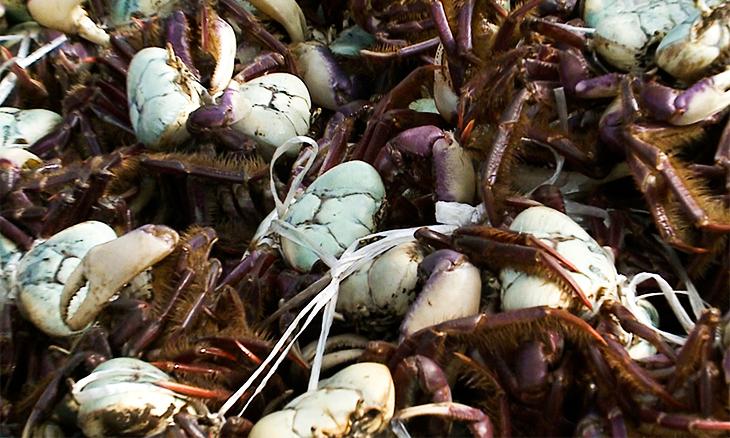Africa-Press – Mozambique. Between January and September, 2021, crab production in Mozambique was down 28.3 % compared to the previous year, the National Fisheries Administration revealed as it announced the impending start of the ban on catching shrimp and crab from 1 November to 31 March next year.
According to the institution, the crab catch in 2021 stood at 6,019 tons, compared to 8,400 tons last year.
“This slight reduction is mainly due to the obligation for fishing companies to present aquaculture projects, which is why some of them no longer operate in the traditional way and have opted for the farming of species in captivity”, he said
The National Director of Fisheries, Cassamo Júnior, says that the fall was due to aquaculture incentives, which had caused a good percentage of operators to stop fishing for the species.
Cassamo Júnior said that, of the 21 licenses granted to fishing operators in 2020, 12 had opted for the production of crab in captivity this year.
However, the shrimp catch was encouraging, with the 2021 catch standing at 5,901 tons, a slight increase of three percent compared to the same period in 2020, when production was 5,801 tons.
Shrimp and crab are subject to an annual closed season, which aims to guarantee stock for the next fishing season. As in previous years, the closed season for shrimp – from November 1 to March 31 next year, is longer than that for crab, which lasts only until December 31st.
The National Administration also requires operators to declare the quantities available to them, the better to monitor the product circulating on the market during the period of prohibition.
Reinforce measures against contraventions
Fisheries authorities have observed that the provinces of Sofala, Zambézia and Nampula are those where violation of the closed season is most problematic, promise tighter inspection there.
According to the National Director of Operations at the Ministry of the Sea, Inland Waters and Fisheries, Leonidas Chimarizene, inspection teams are aware of fishing at sea at night during the closed season, particularly for shrimp.
He promises that surveillance, both at sea and on land, will be ‘severe’, and says that any fish caught by illegal operators but not seized would have been sold on the open market.
“The inspection will take place to a large extent in these areas due to the nature of the situation. However, this does not mean that we will turn a blind eye to others,” Chimarizene stressed.
The closed season for surface shrimp covers all coastal provinces except Inhambane and Cabo Delgado.
Chimarizene further said that authorities were aware of illegal operators using Cabo Delgado to transport the product, as if it had been caught there. Local inspection institutions such as the provincial Fisheries delegations and the Tax Authority would be collaborating to combat this, Chimarizene said.
Industrial, semi-industrial and artisanal fishing operators are subject to the shrimp and crab closed seasons. When it comes to irregularities, the authorities are most concerned about artisanal fishing operators.
As for the industrial operators, Chimarizene stated that they are easier to inspect, as their vessels usually go to the ports to unload the catch, and are furthermore equipped with a monitoring device.
By
Precidonio Silverio






